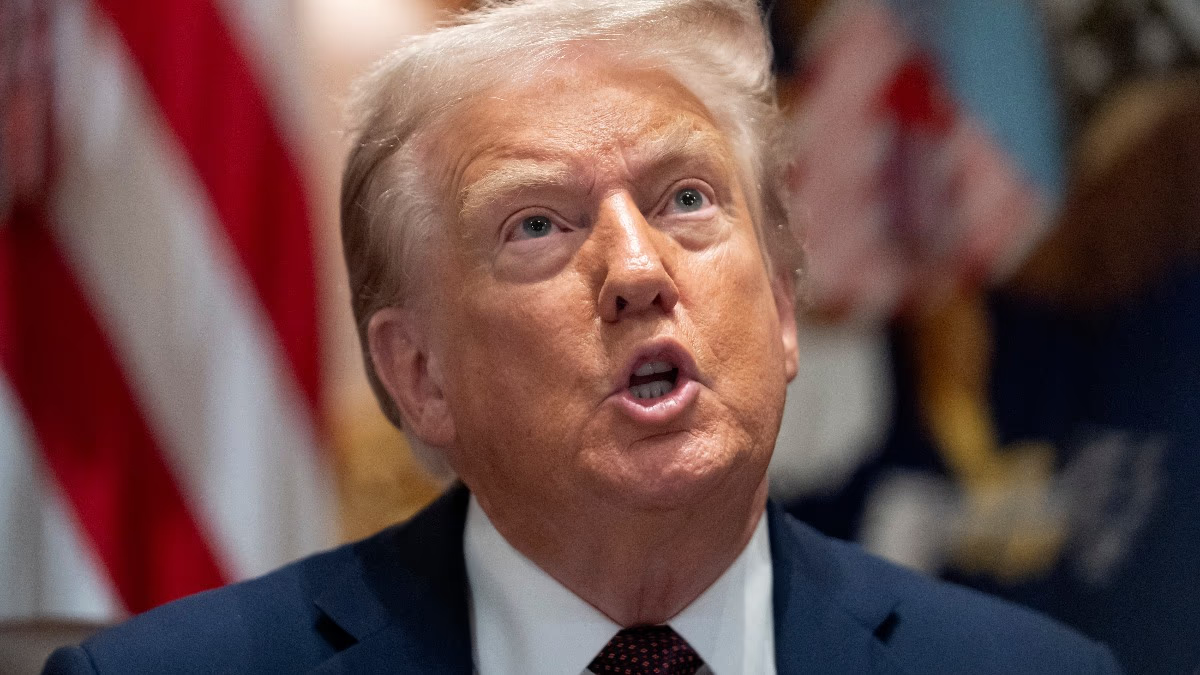President Donald Trump's trade policy hit a major roadblock. The Federal Appeals Court struck down tariffs imposed by Trump, under the guise of a 'national emergency,' on several countries. The court emphasized that the president cannot be granted unlimited powers. This decision arrived at a time when Trump repeatedly claimed he could impose taxes on foreign goods without the need for Congressional approval.
Trump had asserted that he could bypass Congress to levy massive tariffs worldwide. On April 2, he declared a 'Liberation Day' and imposed a 10% baseline tariff on almost all trading partners. Countries with larger trade deficits with the U.S. were slapped with reciprocal tariffs of up to 50%.
Subsequently, he suspended these tariffs for 90 days to allow for negotiations. While nations like Japan, the UK, and the EU reached agreements, substantial tariffs continued against others. For instance, Laos faced a 40% tariff, and Algeria 30%.
Trump cited the 1977 International Emergency Economic Powers Act (IEEPA) and declared the long-standing trade deficit as a 'national emergency.' In February, he extended this application to Canada, Mexico, and China, stating these countries failed to curb illegal immigration and drug trafficking. The U.S. Constitution grants Congress the primary power to levy taxes and tariffs, but this power has incrementally been extended to the president, with Trump exploiting it to the fullest.
What Tariffs Remain Unaffected?
This case is tied to tariffs declared under a 'national emergency.' However, duties on steel, aluminum, and autos imposed for security reasons remain intact, as do initial tariffs against China. The business world is already navigating uncertainty, and this ruling could weaken Trump's pressure tactics.
Trump's argument was that a trade deficit warranted a 'national emergency,' justifying tariffs on that basis. Experts now suggest foreign governments may dismiss U.S. demands or seek to renegotiate old deals.
What Did the Court Say?
The Federal Circuit's appeals court, in a 7-4 decision, found Trump overstepped his bounds under the 1977 IEEPA. Most tariffs were deemed illegal. The court highlighted that while emergency powers exist, they do not extend to setting tariffs or taxes. However, the court did not demand an immediate tariff repeal, allowing Trump's administration the chance for a Supreme Court appeal. Tariffs remain unchanged until October 14, as the federal appeals court remarked it improbable that Congress intended to grant the president unrestricted tariff power.
Why Block the Tariffs?
The Trump administration argued that President Richard Nixon had similar tariff allowances under emergency conditions in the 1970s. Yet, New York's trade court dismissed this in May, stating Trump's 'Liberation Day Tariffs' exceeded lawful authority. On Friday, the Federal Appeals Court echoed that Congress never intended to offer the president 'unlimited rights.' While four judges disagreed, stating the 1977 law isn't unconstitutional, Trump still has an avenue to appeal to the Supreme Court.
Future Implications?
According to Associated Press, if tariffs are entirely nullified, the U.S. Treasury could face billions in losses, having collected $159 billion just by July this year—double the previous year’s intake. Trade strategies might be reshaped as experts suggest Trump's ability to impose new tariffs may be weakened, and foreign nations might stand tougher against U.S. pressure, demanding revisits on past agreements. Trump's 'negotiation power' could consequently diminish.
Trump's Response?
Trump expressed his frustration on social media, stating this decision could devastate America if upheld. He plans to contest it in the Supreme Court, dismissing the court’s order, maintaining all tariffs, and criticizing the ruling as incorrect and biased. He warned it could potentially ruin America if left unchallenged.
Are There Other Options for Trump?
1974 Trade Act: Provides limited power to handle trade deficits, capping tariffs at 15% for 150 days, and only against nations with significant U.S. trade deficits. 1962 Trade Expansion Act (Section 232): Allows tariffs on foreign steel, aluminum, and autos, but requires Commerce Department investigation, and cannot be directly imposed at the president's discretion.
Currently, the appeals court ruling has curtailed Trump's arbitrary 'Tariff Policy.' The final determination on Trump's future authority to tax foreign goods rests with the Supreme Court.




